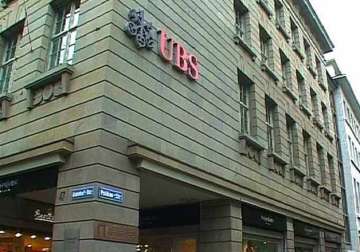Berne: Amid a global black money crackdown including by India, Switzerland has announced a stringent due diligence regime for its banks to 'reject' accepting illicit funds from both existing and new customers.
Swiss banks, known for their strict secrecy practices, would also terminate relationships with existing clients who are found to have stashed illegal assets in their accounts.
Long perceived as a safe haven for stashing untaxed assets including by Indians, Switzerland has been making efforts to do away with such banking secrecy practices and has also agreed to be part of a global automatic exchange of tax information framework.
The latest move also comes at a time when Switzerland is making public names, including that of Indians, among scores of foreign nationals with Swiss bank accounts, for being probed in their respective home countries.
The new due diligence requirements, being mandated by the Swiss government for banks and other financial institutions, are aimed at making Switzerland a "tax-compliant financial centre".
Swiss government also said that banks and other financial intermediaries in future would have to comply with enhanced due diligence requirements when accepting assets in order to prevent the inflow of untaxed assets.
The Federal Council, the highest decision making body in Switzerland, has referred a corresponding dispatch on amending the Anti-Money Laundering Act to Parliament in this regard.
Financial intermediaries would have to put in place a risk-based assessment when accepting assets to determine whether or not the assets have been duly taxed.
The details of the risk-based assessment would be established by the supervisory authorities and the recognised self-regulatory organisation.
"Where a financial intermediary has to assume based on an assessment of this nature that a client is offering untaxed assets, business relationship must be rejected in the case of new clients," the Swiss government said in a statement.
With regard to existing clients, the Swiss government said that an offer of untaxed assets raises the suspicion that the assets the client already has with the financial intermediary are also untaxed.
In such a case, the financial intermediary also has to clarify the tax compliance of these assets, again using a risk-based assessment.
"If the clarification leads to the assumption that these are actually untaxed assets, then the client must provide the financial intermediary with proof of tax compliance within a reasonable period or regularise the situation.
"If the client does not do so within the allotted period of time, the financial intermediary must terminate the business relationship," it noted.
However, the business relationship would not be terminated in cases where it is not possible for the client to provide proof of tax compliance or to regularise the tax situation without running the risk of unreasonable adverse effects.
Latest Business News
